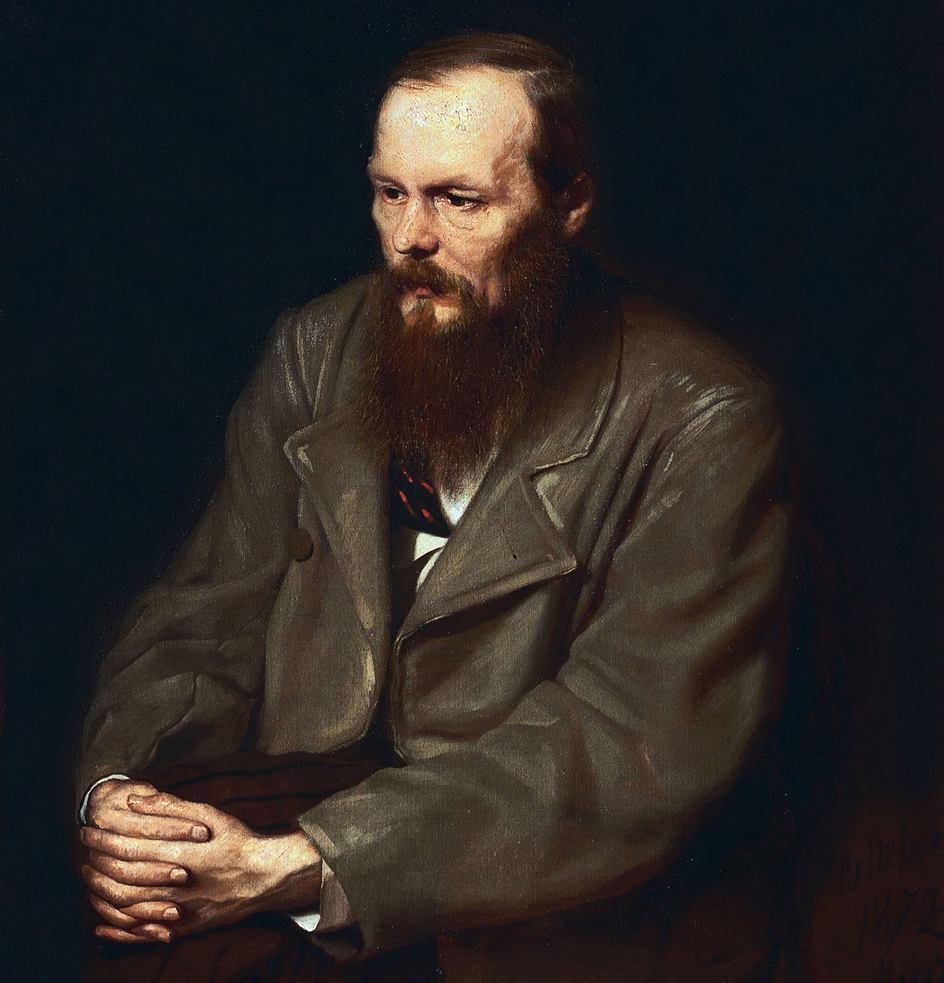Dostoevsky, Fyodor << DOS tuh YEHF skee, FYAW dor >> (1821-1881), was one of the greatest writers in Russian literature. Dostoevsky’s finest works are novels of ideas, embodied in great characters. His intensely individual and highly complex characters are usually caught up in very dramatic plots. The underlying theme in his books is the struggle between good and evil for dominance of the human soul. Dostoevsky attempts to resolve this struggle by leading his characters to salvation through purifying suffering.

Fyodor Mikhailovich Dostoevsky was born in Moscow on Nov. 11, 1821 (October 30 on the old Russian calendar then in use). He received a military engineering education in St. Petersburg but decided to follow a literary career. Dostoevsky’s first novel was Poor Folk (1846), a psychological study written in letter form. His next book, The Double (1846), is the complex story of an unpopular civil servant who goes mad and sees his own double. During the late 1840’s, Dostoevsky wrote many stories about the poor and the downtrodden as well as strange and abnormal residents of St. Petersburg.
In 1847, Dostoevsky joined the Petrashevsky circle, a group of socialists who met to read and discuss political and economic books banned by the government. In 1849, police arrested the members of the circle. Dostoevsky and several others were condemned to death by a firing squad. By order of the czar, they were pardoned moments before they were to die. Dostoevsky was then sentenced to four years of hard labor in a Siberian prison and then served four years as a common soldier.
After returning to St. Petersburg in 1859, Dostoevsky wrote Notes from the House of the Dead (1860-1862). It is a fictionalized version of his prison experiences and one of the great prison works in Western literature. Years of bitter, poverty-stricken existence followed for Dostoevsky. He was plagued by financial difficulties due to poor money management and a gambling habit. See From the House of the Dead.
Dostoevsky achieved success with Notes from Underground (1864), a psychological study of a spiritual and intellectual misfit. His greatest success came with four novels that rank among the masterpieces of world literature. Crime and Punishment (1866) concerns a student who murders because he imagines himself to be superior to most people, but who cannot face the enormity of his crime. In The Idiot (1868-1869), Dostoevsky tried to portray a truly good Christian person. The Possessed (1871-1872), also published as The Devils, is a prophetic portrait of Russian revolutionaries. Dostoevsky’s greatest novel is probably The Brothers Karamazov (1879-1880). It centers on the murder of the evil Fyodor Karamazov and the effect of this crime on each of his four sons. See Nihilism.
His later works show Dostoevsky to be a pioneer in psychological analysis and an important and original religious thinker. As an interpreter of the human condition, he anticipated many of the ideas of the philosophical movement called Existentialism. He died on Feb. 9, 1881 (January 28 on the old Russian calendar).
